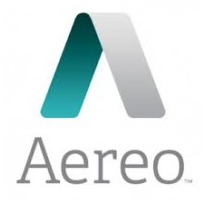Boston’s WCVB-TV sues Aereo in continuing legal battle
Even though they have lost their cases at the federal appeals level, broadcasters are continuing to sue the beleaguered Aereo TV service for retransmitting over-the-air signals without paying for them. Hearst-owned WCVB-TV in Boston joined the bandwagon, claiming Aereo is harming the local station with their service.
“If Aereo is permitted to profit from the unauthorized retransmission of copyrighted television programming, WCVB will be deprived of existing and potential revenue streams from advertising and authorized retransmissions,” Hearst Stations wrote in a 22-page complaint filed in U.S. District Court.

Backed by media mogul Barry Diller, a former broadcast executive himself, Aereo rents its customers a small antenna coupled with DVR software that picks up local broadcast signals and allows them to be watched over Internet-connected devices, including iPads, iPhones and personal computers. The service began in New York City, but recently expanded to the Boston market.
Broadcasters were fighting the service mainly because Aereo doesn’t pay them for the use of their signals. Thus they collect no retransmission fees. ABC, CBS, Fox, NBC Universal and Telemundo have all previously sued Aereo claiming the service violates their copyrights.
“WCVB has not authorized or licensed Aereo to utilize, copy, reproduce, record, alter, transmit, perform, distribute or create derivative works based upon WCVB’s broadcast programming in any manner, or given Aereo permission to authorize others to do so,” the suit said. “Aereo does not qualify for a statutory copyright license to do so under the Copyright Act. Nor does Aereo qualify as a passive carrier exempt from liability under 17 U.S.C. § 111(a)(3) or for the private, non-commercial antenna copyright exception embodied in 17 U.S.C. § 110(5).”
Heart said Aereo “free-rides on WCVB’s substantial investment in its broadcasting infrastructure” and is “willfully, wantonly and unfairly exploiting WCVB’s programming and broadcasts for its own commercial benefit.”
So far, the broadcasters are losing in court. Last April, an appellate court denied a preliminary injunction on behalf of the broadcasters that would have prevented Aereo from transmitting recorded broadcast television programs to its subscribers.
The court found there was no copyright infringement since each subscriber is rented an individual antenna used to pickup a station’s signals. The court found that the broadcasters “have not demonstrated that they are likely to prevail on the merits of this claim in their copyright infringement action.”
The Hearst filing makes it clear that broadcasters have not given up, and many think the U.S. Supreme Court will ultimately decide the case.
Aereo is now operating legally in three markets: New York City, Atlanta and Boston. It has plans to expand the service in 22 more cities in the coming months.
Get the TV Tech Newsletter
The professional video industry's #1 source for news, trends and product and tech information. Sign up below.
